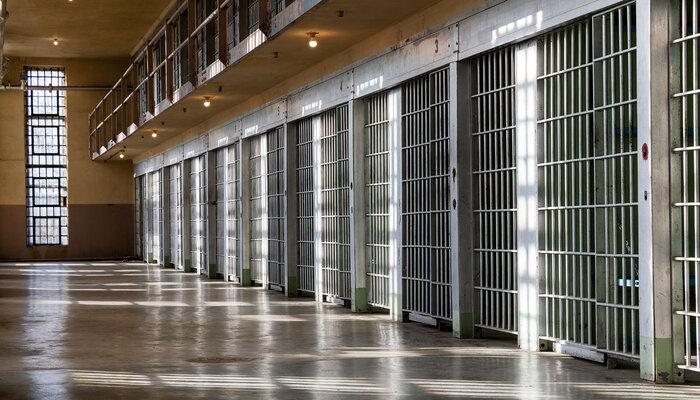You’re reading The Briefing, Michael Waldman’s weekly newsletter. Click here to receive it in your inbox.
Get ready: in election year 2024, fears of crime and warnings about criminal justice reform will become ever more clamorous. We will need to fight fear with facts. Now the results are in on the most recent major federal justice reform law. And it turns out reform actually helps public safety while enhancing fairness.
For decades, crime was the most potent wedge issue in American politics. Understandable worries about soaring violence in the 1970s and 1980s inflamed voters. Then, starting in the early 1990s, crime began to fall — a dramatic decline that lasted decades. A greater public sense of safety drained the issue of much demagoguery. And a remarkable bipartisan movement for a more fair and efficient justice system began to make significant headway.
Five years ago, that coalition won enactment of the First Step Act. It was the most meaningful federal sentencing reform in a decade, cutting away punishments that ruined lives but did little to improve public safety. It also built up rehabilitation programs in federal prisons. It was a bill backed by Reps. John Lewis (D-GA) and Hakeem Jeffries (D-NY), sponsored by Sen. Charles Grassley (R-IA), and signed into law by President Trump, who even honored some beneficiaries of the law as guests at his State of the Union address.
How did it work out? According to the Council on Criminal Justice, recidivism is 37 percent lower among people released because of the First Step Act than among others leaving prison. It’s proof that data-driven sentencing reform benefits everyone: taxpayers, the people granted a second chance, and the families and communities that have been riven by excessive incarceration. That’s why last week, members of Law Enforcement Leaders to Reduce Crime and Incarceration, a group of current and former chief prosecutors, police chiefs, sheriffs, and corrections officials that was part of the unique coalition that ensured the law’s passage, participated in a congressional briefing hosted by the Brennan Center to commemorate its fifth anniversary. It was something unexpected in Washington these days: a celebration of good news.
The First Step Act expanded options for compassionate release, including for the elderly and the seriously ill. It granted judges — the people in the best position to balance public safety against the circumstances of the individual defendant — more discretion to choose an appropriate sentence. And it lowered some excessive mandatory minimum sentences.
Crucially, the law helps people prepare for reentry. It expanded access to substance abuse treatment and employment opportunities. It also promoted more humane prison conditions, placing people closer to their families, banning the shackling of pregnant women, and making menstrual products free for those in federal prison.
It was a proof of concept, in terms of both politics and policy. At a time when the two parties can’t agree on a lunch order, smart sentencing and prison reform have been rare opportunities for bipartisan agreement. This marked a shift. For the longest time, democracy issues were bipartisan: in 2006, the Senate voted 98–0 to reauthorize the Voting Rights Act, and Republican John McCain of Arizona teamed with Democrat Russ Feingold of Wisconsin to enact campaign finance reform. That comity seems as quaint as powdered wigs. Unexpectedly, criminal justice reform has a better chance of winning support from both parties.
True, the crime spike in recent years rattled that consensus. Florida Gov. Ron DeSantis (R), who voted for an earlier version of the legislation as a congressman, now derides it as a “jailbreak bill.” But crime again is trending down as the pandemic recedes. We all should try to tamp down the fearmongering as the election season approaches.
There’s more to do. A bill to reduce the disparity between sentences for crack and powder cocaine cleared the House by a 361–66 margin, only to fall to dysfunction in the Senate. We should continue to fight to make sentences more reasonable, improve prison conditions, and help people leaving prison have a better chance at successful reentry. Bills pending in Congress right now would accomplish all of these things. It’s time to take that next step.






